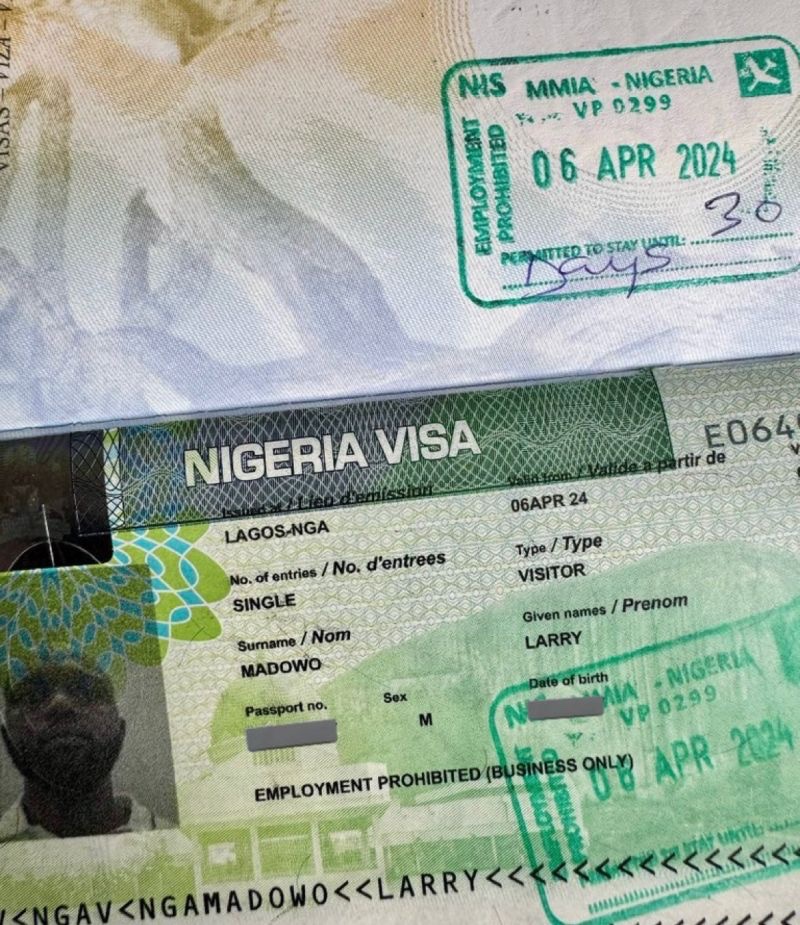
No More Hiding: FG Launches Online Amnesty Portal for Overstaying Foreigners Before August Crackdown

In a move that has sent shockwaves through Nigeria’s immigrant community and sparked a flurry of conversations across embassies, consulates, and social media platforms, the Federal Government has announced the activation of an online immigration amnesty portal set to go live in July. This sweeping initiative will allow foreigners who have overstayed their visas to regularize their residency status before August 1, when a new regime of stiff penalties and potential deportation orders will be unleashed nationwide. The announcement, described by many as a blend of mercy and muscle, comes as Nigeria intensifies efforts to sanitize its immigration system and restore order to its overstretched border management operations.
The news broke earlier today in Abuja, where top officials of the Nigeria Immigration Service (NIS), under the auspices of the Ministry of Interior, convened a high-level press briefing to unveil the upcoming amnesty window. The online portal, they revealed, will provide a once-in-a-lifetime opportunity for thousands of undocumented or visa-overstaying foreigners to escape looming sanctions by simply logging in, providing accurate information, and initiating the process to normalize their stay. Immigration authorities were firm: once the clock strikes midnight on July 31, there will be no extensions, no grace period, and no excuses.
According to the Comptroller-General of the Nigeria Immigration Service, the idea behind the amnesty portal is not only to encourage voluntary compliance but also to reduce the administrative burden on physical immigration offices across the country. “This is a proactive step to address the overwhelming number of foreigners residing illegally in the country,” he said. “It is not a witch-hunt. It is an opportunity for individuals to take responsibility and get right with the law. We are opening our doors for forgiveness—temporarily.”
The amnesty covers all foreigners who have overstayed their visas—whether tourist, business, student, work, or diplomatic—provided they have not committed any criminal offenses. To access the portal, users will be required to fill out a verification form, upload valid identity documents and visa copies, pay a nominal processing fee, and await a decision from immigration officials. Those cleared through the portal will be issued a temporary residency pass or granted a renewal option depending on their case category, while those who fail to comply by the August deadline risk arrest, deportation, fines running into millions of naira, and in some cases, bans from re-entry into Nigeria.
Sources inside the Ministry of Interior say the initiative has been under development for months as part of broader reforms aimed at digitizing Nigeria’s immigration processes, aligning with international standards, and addressing the long-standing issues of illegal residency, visa racketeering, and porous border controls. The move also comes amid growing pressure from foreign diplomatic missions and regional partners for Nigeria to strengthen the regulation of its foreign nationals, especially in the wake of rising security challenges and transnational crimes.
Reaction to the announcement has been mixed, with many foreigners welcoming the opportunity to legalize their stay without fear of immediate punishment, while others remain skeptical about the practical implementation of the policy. In Lagos, Abuja, and Kano—cities known for their large expatriate and ECOWAS migrant populations—immigration consultants and legal experts say they have been flooded with inquiries from anxious clients seeking clarity on how the portal will function, what the application timeline looks like, and whether past offenses will be overlooked.
“This is a positive step, no doubt,” said Chidi Okafor, a migration lawyer based in Victoria Island. “But the Federal Government must ensure transparency, efficiency, and sensitivity throughout this process. Many of these foreigners overstayed not out of malice, but due to delays in application processing, changes in visa regimes, or simply being misinformed. The system must be robust enough to handle the volume and complexity of these cases.”
Several embassies have also issued public advisories urging their nationals to take advantage of the amnesty period. The Ghanaian High Commission in Abuja released a statement encouraging Ghanaians to comply with Nigerian immigration law and ensure that their documentation is up to date. Similarly, the Indian High Commission emphasized that any of its citizens residing in Nigeria with expired visas should immediately begin preparations to submit their applications once the portal opens.
Meanwhile, there is mounting speculation about how the Nigerian government plans to enforce the crackdown after August 1. While immigration authorities have remained tight-lipped on the specific enforcement mechanisms, there are indications that a nationwide sweep is being planned, with coordinated efforts involving the Nigeria Police Force, Department of State Services (DSS), and even paramilitary outfits to ensure compliance. Land borders, airports, hotels, business hubs, and even religious centers are expected to be monitored as part of the post-amnesty enforcement strategy.
Human rights advocates have called for caution, warning that aggressive crackdowns may lead to the harassment of legal residents, racial profiling, and diplomatic friction if not carefully executed. They are urging the government to prioritize awareness campaigns and work closely with community leaders and diaspora networks to disseminate accurate information and avoid panic.
Nonetheless, the message from the Federal Government remains clear: the era of lax immigration oversight is coming to an end. With the launch of this portal, Nigeria joins a growing list of countries—from the United States to the United Arab Emirates—that have adopted online immigration amnesty programs as a humane yet firm way to regulate the movement and settlement of foreigners. Officials hope that this step will not only boost national security and public order but also restore confidence in the country’s legal framework among foreign investors and development partners.
As the calendar flips into July, thousands of overstaying foreigners in Nigeria are now faced with a choice—step forward, regularize, and embrace the law, or hide in plain sight and risk the consequences. The government’s tone may be diplomatic, but the message behind this amnesty is unmistakable: the countdown to compliance has begun.


